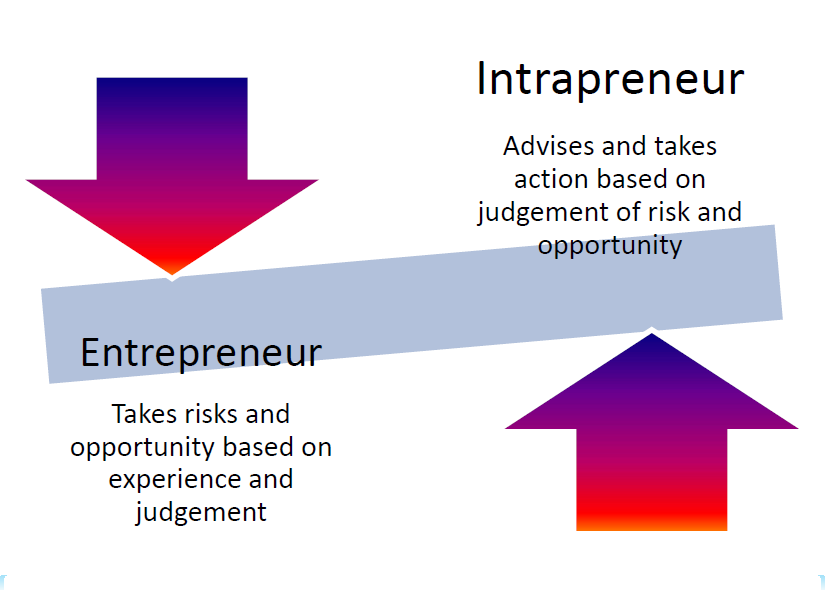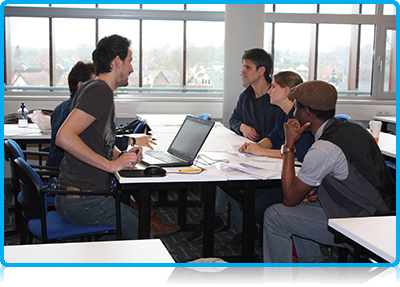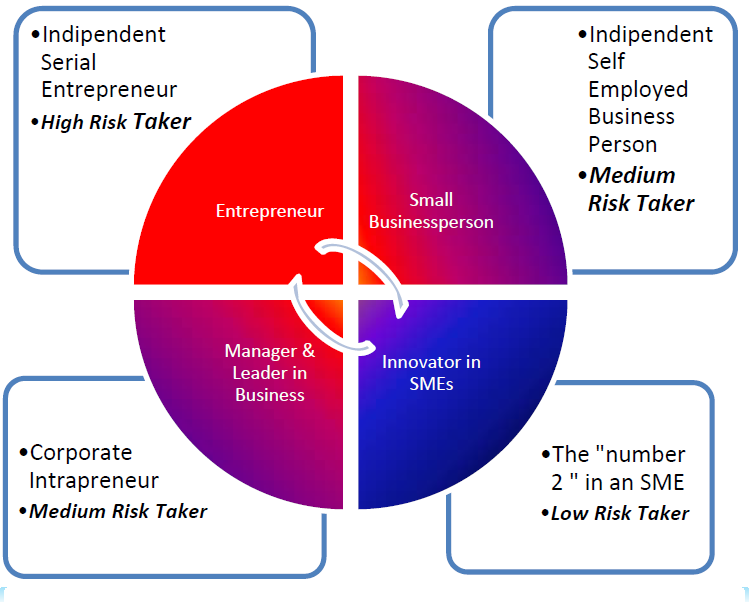
Gauhar Kassymbek (Kazakhstan): “Not only is Amsterdam a multicultural and tolerant city, but it’s also a business hub with plenty of companies, start-ups, investors, events and opportunities.”
Introduction
If you are looking to advance your career in management or start a new entrepreneurial pathway, or pursue a career in the innovation and strategic change management sector or department of a company, then the MBA in Entrepreneurship & Innovation will enable you to make the leap into new business and management roles from an existing position, or prepare you to enter a new role at managing a new or existing business, either as an entrepreneur, or an 'intrapreneur', helping an owner or startup to develop.
The MBA in Entrepreneurship is one of the specialisations in our international MBA programme offered at Wittenborg to full-time and part-time students from the Netherlands and around the world.
An international team of lecturers and business leaders has been designed this MBA for those ready to make the climb into management roles, either from an existing job or graduates with some work experience who are aspiring to become managers. Together with the traditional MBA building blocks, this MBA in Entrepreneurship & Innovation offers additional modules with a particular focus on entrepreneurship, strategy and innovation.”.
Throughout the Wittenborg MBA, we take a strategic perspective on business and management, always from an international viewpoint, and help you to develop the skills to contribute to major decisions made by your current or future organisations that will help shape their future.
We welcome students from any academic or working discipline background to apply for this programme. Many entrants to our Wittenborg MBA programme do so with a science or technology background - it is not necessary that you have studied business or management before - the first semester equips you with all the tools you require to specialise further on the MBA in Entrepreneurship & Innovation.
- Further develop your current skills and experience to a management level;
- Extend your interest in financial decision making;
- Develop a strategic perspective on business;
Course Content
Course structure
The MBA programme is delivered in a ‘block format’, with 2 modules being covered every 6 weeks. Core module classes are inter-disciplinary - you study shared modules with master students from different business management specializations. Due to the rolling entry (6 times a year) groups are dynamic, extremely international, and diverse.
The modules are delivered intensively over consecutive days in the 'block format', which means that each module has 6 days of teaching, split into two blocks of 3 days. Teaching methods include group work, case studies, presentations, and live projects. The course is delivered through a variety of approaches including lectures, presentations, tutorials and case studies, with an emphasis on interactive learning. Each module is taught by two lecturers, often a full-time Wittenborg lecturer and a guest lecturer from a partner university. Modules also include regular guest speakers from the industry.
Areas of study
Management subjects address key issues of strategy, marketing, operations, human resources, accounting and financial planning, studied in parallel with deeper international corporate finance and investment modules. Options include consultancy and multi-unit management. Students acquire research skills, which they can apply to academic or industrial projects.
Syllabus
Semester 1
- Human Resource Management
- Marketing Management
- Management Accounting & Finance
- Operations Management
- International Management
- Information Management
Semester 2
- Innovation, Creativity & Entrepreneurship
- International Corporate Sustainability
- Business Statistics
- Strategic Management
- Venture Capital & Private Equity
Throughout the programme: Research Methods, 3 Project weeks, leading to the Final Project
The Industry

Professional Profile
An entrepreneur in business can fulfil two main functions; the driver of new business ventures itself (entrepreneur), or the driver of innovation and change within existing business (intrapreneur). The profile only essentially differs between these two roles in the requirements of the level of ability to take risk and aptitude for taking opportunity. Both the ability to judge risk and being aware of opportunity are competencies required at both ends of this profile’s spectrum.
An Entrepreneur requires the ability to lead and motivate people. This will be during business start-ups and project launches, but also in times of change and innovation implementation. The Entrepreneur will understand the need for good communication skills and have a good understanding of society, economics and sustainability. The Entrepreneur will have skills of selling ideas and products, winning commitment, and presenting and executing business plans. Understanding the need for stable and solid management within a company, large or small is important. An entrepreneurial business person in modern day Europe needs to be able to communicate with people across the continent and across the world, and requires the ability to understand the effects of national and international governments on the business ventures they are involved in. Entrepreneurs and Intrapreneurs need the ability to look at problems and risks from a holistic view point and find solutions and manage risk through innovation. They need to have a good understanding of finance and fiscal matters and be able to knowledgably communicate with people supporting them through accountancy, or human resource or information services, and be able to lead these people.
Entrepreneurs and intrapreneurs are successful because they can quickly understand complex situations that require them to plan and make strategic decisions, and work on a multitude of business ideas and projects at the same time. They have a solid understanding of marketing design and implementation. Being able to develop business ideas simultaneously requires an ability to determine and understand important details, pinpoint alternatives and continuously evaluate and review business processes. A characteristic of entrepreneurs is that they have the ability to fully devote and commit themselves to achieving their long term business objectives and goals, and that this energy is also directly translated into the short term objectives.
The MBA Graduate in Entrepreneurship & Innovation
“An international business administration professional will develop into a career person who is able to organise, develop products, services and policies, instigate and execute policies, perform under stress, control processes, analyse organisation traits, utilise human res-ources and plan their management, motivate staff and personnel, manage financial information, use information effectively, plan and organise campaigns, understand internal and external markets, interact with the surroundings, network, manage chains, communicate effectively, show leadership skills, manage meetings, present ideas, sell ideas and products, speak and write at least the English language, participate in company and organisation decision making and understand local and international cultures and the effects these have on the organisation and the individual.”
“Business Administrators can operate in financial or technical environments but also management and leadership settings and a combination of these. They must understand the need for leadership and motivating people. They must understand the impact of change and the need for innovation. The Business Administrator will understand the need for good communication skills and have a good understanding of society, economics and sustainability. Understanding the need for stable and solid management within a company, large or small is important. A business person in modern day Europe needs to be able to communicate with people across the continent and across the world, and requires the ability to understand the effects of national and international governments on the business ventures they are involved in.”
“An MBA qualified Business Administrator is specifically able to manage a number of complex and integrated business operations within an international or a local setting, at both a tactical and strategic level, using skills and competencies that require a capability of inter-disciplinary thinking. They will show the ability to combine solid research and critical analysis skills to develop an organisation’s corporate strategy within its business and cultural domain.”
Career Prospects
 MBA Enhancing Your Career!
MBA Enhancing Your Career!
MBA graduates are often fast-tracked into senior management positions and this MBA programme has been designed for those who wish to pursue senior management positions or as preparation for further study in business, such as a DBA, or a PhD.
The MBA will further the careers of
- Dutch or other EU graduates who are working in an organisation, managing people or processes, and are looking to improve their career opportunities within their current employment position. These students are supported by their employer and can study the programme part-time;
- Dutch, or other EU graduates who have been working in an organisation, managing people or processes, and are looking for a full time MBA programme that will increase their employability chances in an international market;
- International graduates in the Netherlands, who have a completed a Bachelor degree and have worked in an organisation with responsibility managing people or processes, who are looking to improve their career opportunities, either at their current employer or in the search for a new opportunity;
- International students worldwide, from business or non-business fields, with a proven number of years managing people or processes within an organisation. These students are looking for an English-taught, internationally orientated MBA programme that can allow them to improve their career prospects in the job market either at home or in the Netherlands, either at their current employer or at a new organisation, and possibly continue their studies at a higher level.
 The profession - an MBA qualified Entrepreneur / Intrapreneur
The profession - an MBA qualified Entrepreneur / Intrapreneur
Wittenborg sees the possible professions of a graduate from the Master of Business Administration in Entrepreneurship & Innovation in four inter-related sections, between which there is often and natural overlap:
The (Serial) Entrepreneur
This is seen as someone who is committed to starting businesses and companies from scratch and making them a success.
The Independent Self Employed Business Person
This is seen as a person who directs and manages a company, an SME. This could be the owner of a family driven business, or a business person who buys and takes over an existing business. This can also be an entrepreneur who has started a business through innovation and remains directing and managing that company, without selling or leaving to start a new venture.
The second in command in an SME
This, extremely important entrepreneur is the most common non-executive entrepreneur in small business. An entrepreneur, as the number 2 in an SME is a vital position as it enables the company to develop in an innovative and goal orientated manner, with a careful balance of risks and opportunities. This kind of Intrapreneur is someone who has had experience of business or project start-ups and project management, and has now reached the moment where the experience and knowledge gained can be used to support another entrepreneur.
The Corporate Intrapreneur
This entrepreneurial role is becoming increasingly important within companies and organisations, as well as non-profit and governmental organisations, as they are forced to change, develop and innovate in the modern economy and business environment. Corporations require entrepreneurial business leaders who alongside their leadership qualities have a broad range of business skills and competencies and business administration knowledge.
Entry Requirements
- a Bachelor degree or equivalent recognised qualification;
It is not necessary to have obtained a Bachelor degree from the domain of Business Administration.
- 3 years professional experience;
Applicants are requested to provide 2 reference letters from which at least one is a reference from a company or organization where they have worked before;
English Language Requirements
IELTS 6.5 or TOEFL Equivalent. Click here for an overview of the equivalent scores.
The TOEFL Code of Wittenborg is 4889.
With its work experience requirement, the admission requirements reflect the national requirements in the Netherlands for entry into a professional Master such as the Wittenborg MBA. The English language proficiency level requirement is ½ a point higher than the minimum national requirements in the Netherlands.
Selection procedure
There is no specific selection procedure for students wishing to enter the MBA, however non-EU (visa) students are “screened” according to their background, in order for the institute to be able to guarantee their immigration status.
The screening comprises of an interview, collection and correlation of all IND required documents, including proof of sufficient funds, taking into account any scholarships provided by Wittenborg (Orange Tulip Scholarship, for instance) or by third parties (NUFFIC, EU, etc).
Details on Scholarships at Wittenborg can be found at http://www.wittenborg.eu/wittenborg-financial-assistance.htm
Applicants are required to provide a motivation letter in which they describe the reasons for choosing Wittenborg’s programme, as well as the reason for wanting to study in the Netherlands (international students). Student motivation is important as the programmes are demanding and especially for international students there is a criteria that they complete at least 50% of all their credits in a year.
Apply / Information Request
Fill in the Information Request Form to get more information about our programmes and admissions process. You can also send an email to admission@wittenborg.eu, and one of our team members will reply to you as soon as possible.
Please note that our office is open Monday to Friday from 08:30 to 17:00 Dutch time.
If you wish to directly start your application, please start your application here.


